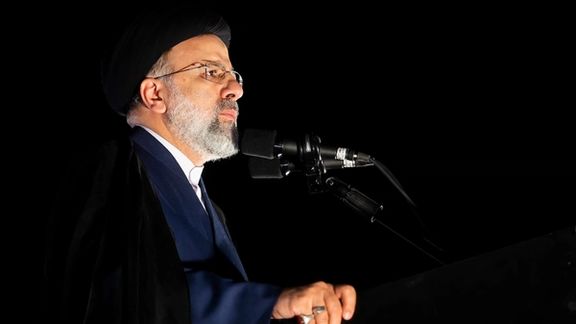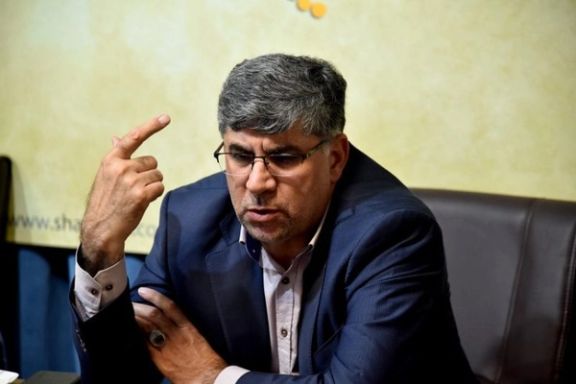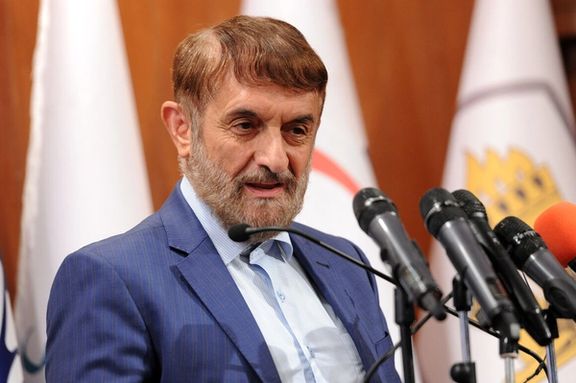Politicians, Media Criticize Iran's Economic Decline Under Raisi

An Iranian lawmaker says President Ebrahim Raisi’s administration is incapable of controlling inflation although it had a far greater revenue than its predecessor.

An Iranian lawmaker says President Ebrahim Raisi’s administration is incapable of controlling inflation although it had a far greater revenue than its predecessor.
The member of parliament’s national security, Shahryar Haidari, attributed the weakness to the Raisi administration's inefficiency.
"While government revenues increased under President Raisi's government, it did not manage the resources as efficiently as the previous government [of President Hassan Rouhani] that had succeeded in controlling inflation to some extent…," Haidari said.
However, he did not mention that the Rouhani administration had more access to the national foreign currency reserves although both governments are accused of wasting the national savings.

Recent statements by officials revealed successive governments spent $140 billion of Iran’s National Development Fund in 15 years, with the Rouhani administration in power for eight years.
On the other hand, the current government's "better financial status" is based on claims by its officials about rising oil exports, while economists, politicians and the media have reiterated every now and then that, the government has not been able to repatriate the hard currency for selling the oil at a price discount of 30 to 40 percent.
Haidari also praised the Rouhani administration for handling the negotiations over the revival of the 2015 nuclear deal more efficiently thanks to its capability and experience without undermining Iran's interests. Meanwhile he criticized the current government's diplomatic weakness.
The lawmaker argued that although not all of the country's problems are linked to sanctions and JCPOA nuclear talks, yet the situation could improve by 70 percent if the negotiations reach positive results.

In recent days, first, an adviser to Supreme Leader Khamenei, Ali Aghamohammadi, who is also a member of the Expediency Council admitted that the country's economic situation is far less than desirable and that as a result "at least 19.7 million Iranians are deprived of proper housing, employment, medical care, food and clothing."
Later, former Telecommunications Minister Mohammad Javad Azari Jahromi criticized the Raisi administration for failing to stand by its promises of mending social divides, halving the inflation rate and immediately solving problems with the country's investment market. He pointed out that Raisi has lost a lot of his over two million followers on Instagram.

On Saturday, hardline daily Kayhan, whose editor is appointed by Supreme Leader Ali Khamenei and usually fully and unjustifiably defends the Raisi administration, shyly but openly criticized exiting economic conditions and wrote: "The people's economic situation has not improved under the new government. The cost of housing has continuously grown, and the price of essential commodities have increased, putting the people under pressure."
The Kayhan reiterated that "prices in the market in Iran reflect a chaotic situation." The daily added that the Islamic Republic cannot tolerate rising popular dissatisfaction. The economic problems of low-income Iranians is part of the country's realities, and the Islamic Republic and the ideology of late Ayatollah Ruhollah Khomeini and Supreme Leader Khamenei call for improving the economic situation in the interest of low-income Iranians." However, the daily stopped short of suggesting how this can be done.
The hardliner daily, as many other media outlets and public figures in Iran, steered away from pointing to US sanctions as the main reason for the economic crisis, and the need for an agreement with Washington.